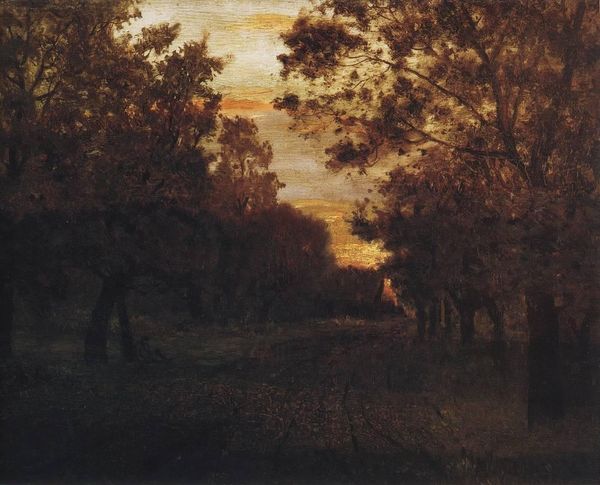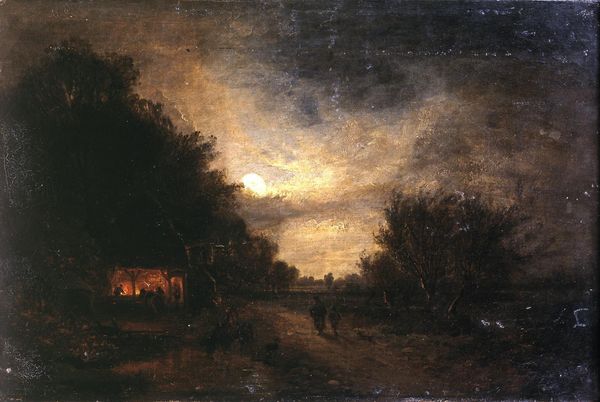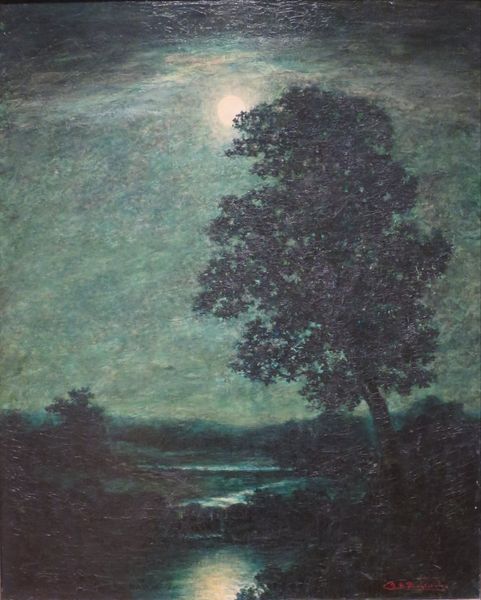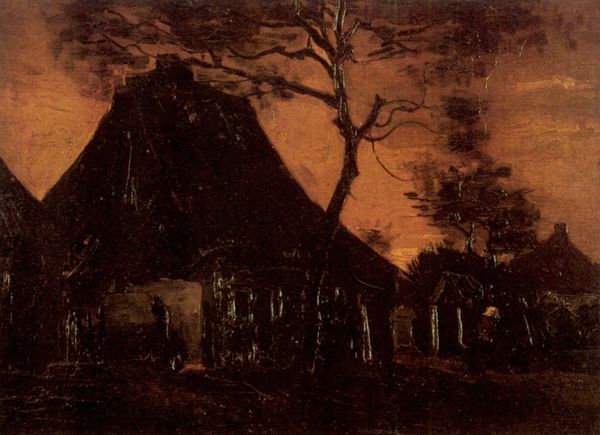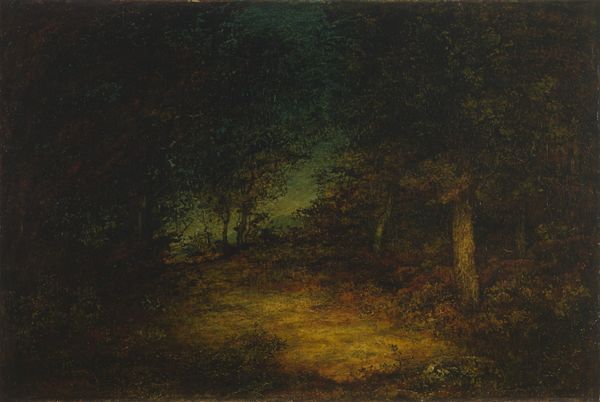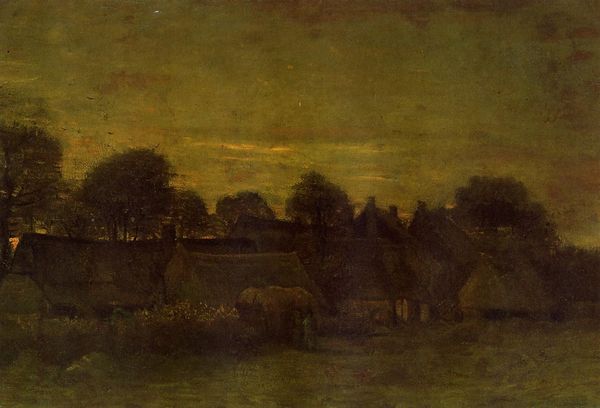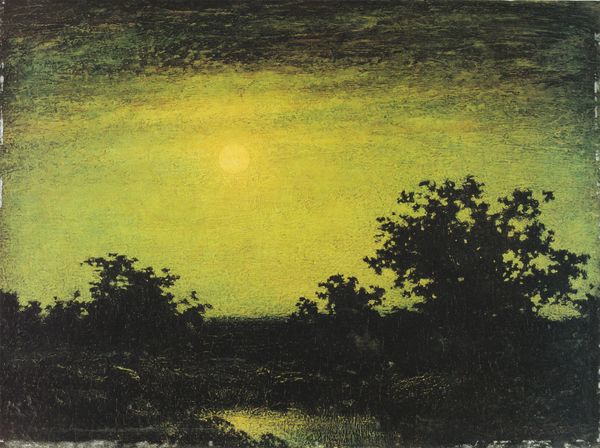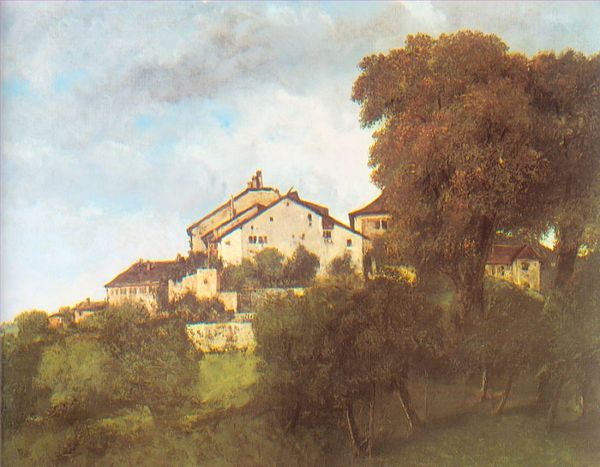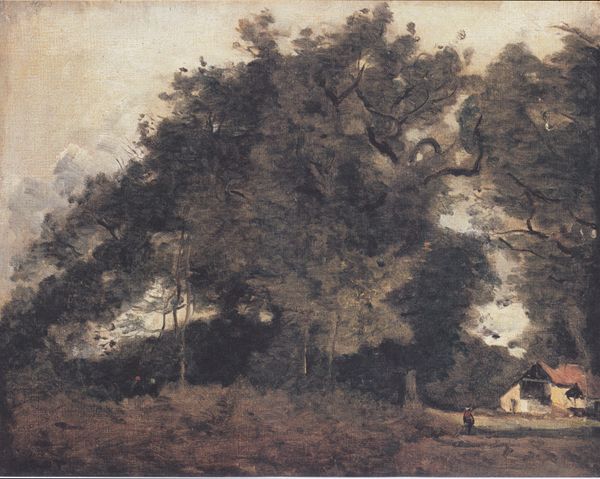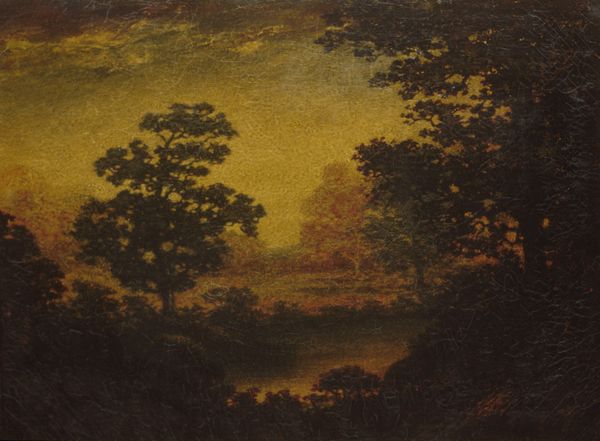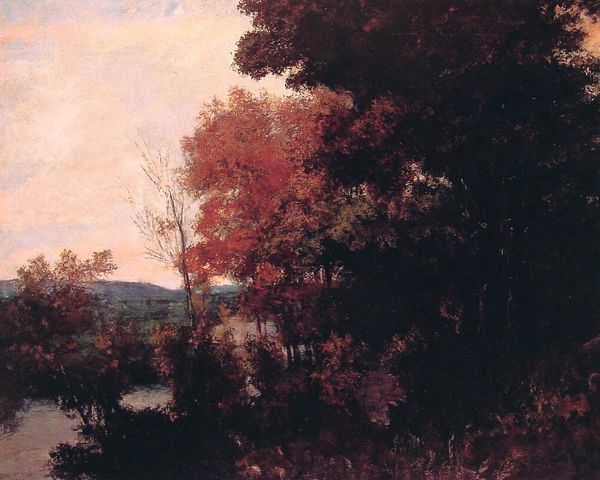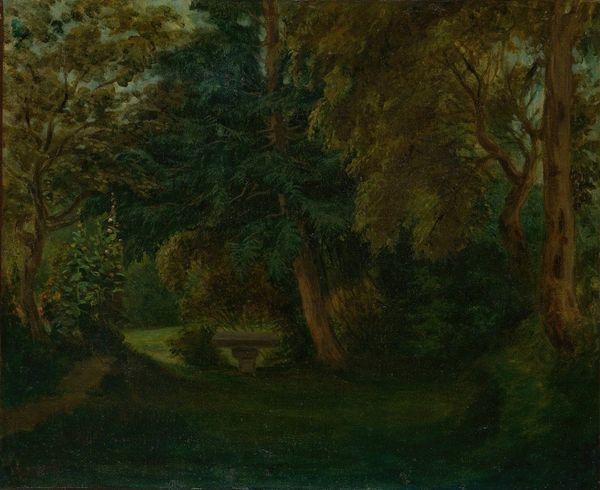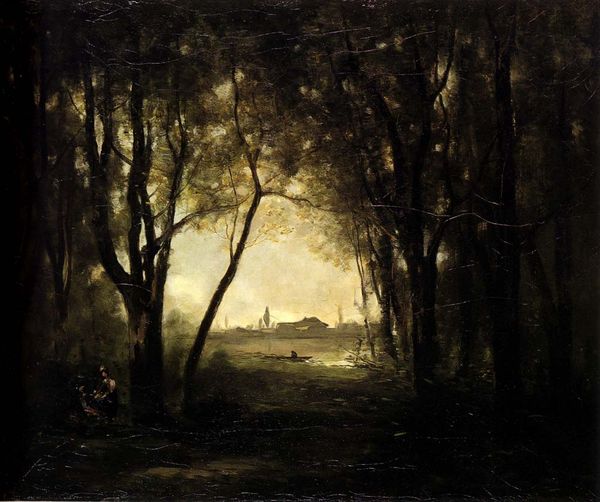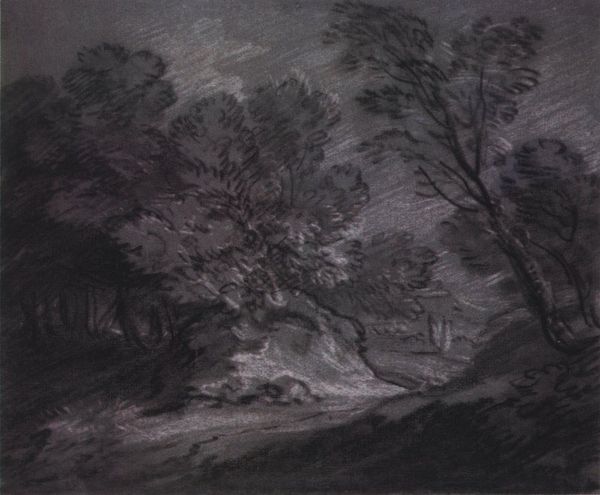
oil-paint
#
impressionistic
#
sky
#
impressionism
#
oil-paint
#
landscape
#
impressionist landscape
#
figuration
#
vanitas
#
romanticism
#
cityscape
#
surrealist
#
watercolor
Copyright: Public domain
Ralph Blakelock’s ‘Edge of the Forest’ evokes a potent symbolism through its central motif: the house. It is framed by the dark, enclosing woods. The house, historically, represents the self, and here, it emerges from the subconscious, bathed in an ethereal light. The forest, a primal symbol of the unknown and untamed wilderness, hems it in. We are reminded of the Romantic era's fascination with nature's sublime power, where the forest could be both a source of spiritual awakening and psychological turmoil. Consider how this echoes in fairy tales, where the dark woods are often a place of trial and transformation. The house is the ego, a vulnerable structure in the face of the imposing forest. It’s a motif found in dreams and myths, and the emotional tension is palpable. The image taps into a collective memory of shelter and exposure, safety and threat, reflecting an unending cycle of psychological exploration.
Comments
No comments
Be the first to comment and join the conversation on the ultimate creative platform.
